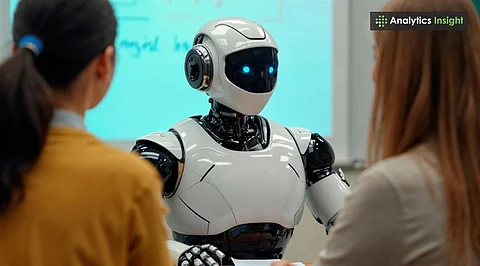By 2025, the integration of AI learning assistants is reshaping the educational landscape, providing personalized education tailored to individual student needs. These virtual teaching aids allow educators to shift their focus from routine tasks to mentorship and complex problem-solving, enhancing the overall learning experience.
Personalized Learning Experience
The introduction of AI technology in education offers numerous benefits, including increased student engagement, improved accessibility, and enhanced academic performance. Traditional classroom settings often struggle to address the unique learning paces and styles of each student. In contrast, AI learning assistants can identify these individual characteristics, enabling a customized approach to education.
AI tools track students’ progress, identifying areas of weakness and adjusting materials accordingly. This adaptive learning model means that students receive support tailored to their capabilities, making the learning process more effective. Additionally, AI provides visual aids to help explain complex concepts, further enriching the educational experience.
One significant advantage of AI learning assistants is the 24/7 support they offer. This constant availability allows students to prepare for exams at their own pace, thus reducing stress and increasing confidence. Students can create personalized learning schedules, which fosters a sense of autonomy in their education.
Enhancing Educators’ Efficiency
AI assistants also streamline everyday tasks for educators. They facilitate quiz creation and performance assessments, significantly reducing the time spent on administrative duties. This efficiency allows teachers to concentrate on creating engaging classroom environments, enhancing interactions with students.
Moreover, advanced features such as translation services, user-friendly interfaces, and text-to-speech capabilities offer essential support for students with disabilities. Those facing language barriers can utilize AI assistants to overcome these challenges, while students with conditions like dyslexia benefit from audio amplification and instant translations.
AI learning assistants have been tracking student progress for years, guiding them in selecting appropriate courses post-graduation. They can recommend skills enhancement tailored to specific career paths, enabling students to strengthen their capabilities and explore new topics with confidence.
As the education sector continues to evolve, the role of AI is becoming increasingly crucial. Personalized learning through AI allows students to work at their own pace while receiving tailored feedback and support. Although AI may not replace teachers, it undoubtedly enhances their ability to provide effective learning assistance.
The collaboration between human educators and technology is poised to create a positive impact on education, fundamentally transforming how students acquire new knowledge. By harnessing the capabilities of AI, educational institutions can deliver more effective and engaging learning experiences, preparing students for future challenges.
